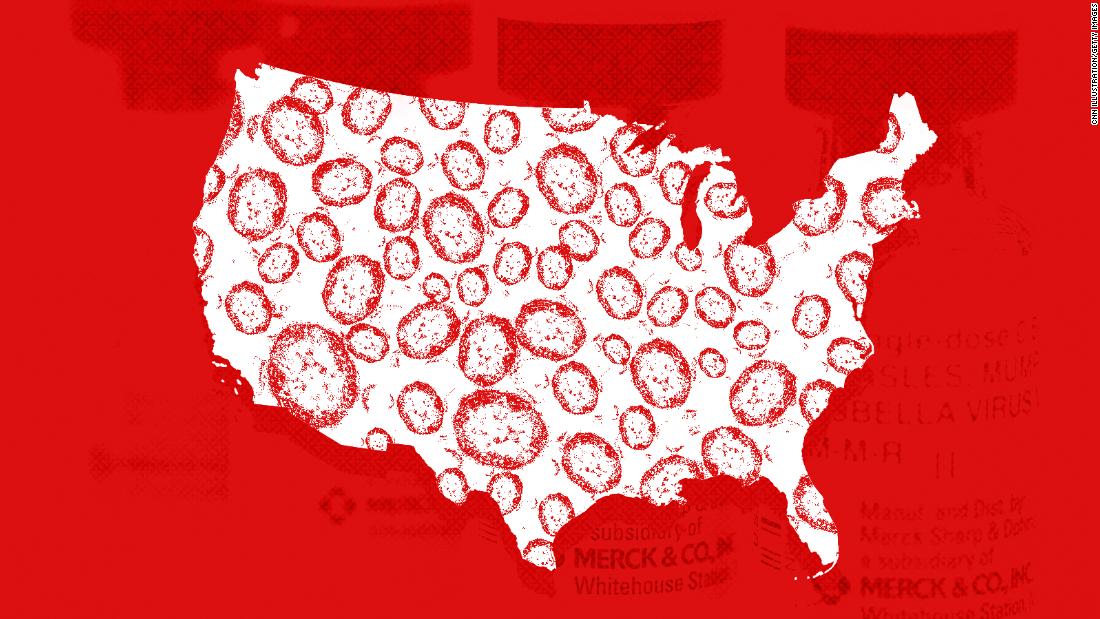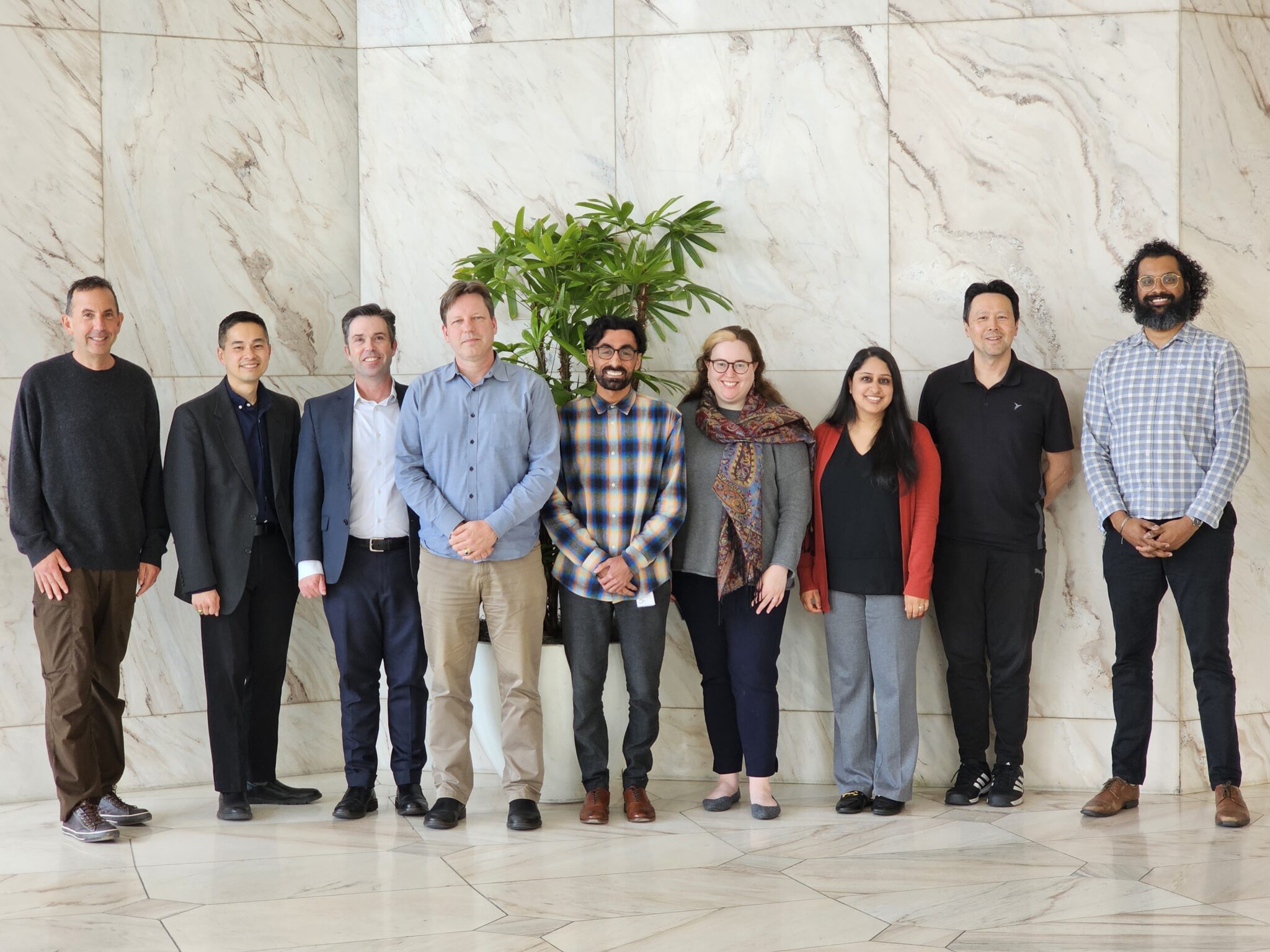Combating The Persistence Of Measles: A Public Health Challenge

Table of Contents
Understanding Measles Persistence: Factors Contributing to Continued Outbreaks
Several interconnected factors contribute to the ongoing problem of measles persistence. These factors complicate eradication efforts and necessitate a multifaceted approach to control and prevention.
Vaccine Hesitancy and Misinformation
One major contributor to measles outbreaks is vaccine hesitancy, fueled by the spread of misinformation. Anti-vaccine campaigns, often disseminated through social media and online forums, spread misleading claims about vaccine safety and efficacy. These claims, lacking scientific basis, erode public trust in vaccines and lead to decreased vaccination rates. For example, the false link between vaccines and autism, despite being repeatedly debunked by scientific studies, continues to circulate and influence parental decisions.
- Examples of anti-vaccine arguments: Claims of vaccine ingredients causing autism, links to other chronic illnesses, and assertions of unnecessary medical intervention.
- Impact on herd immunity: Low vaccination rates undermine herd immunity, leaving vulnerable individuals susceptible to infection and increasing the risk of outbreaks.
- Strategies for effective counter-messaging: Public health campaigns must employ evidence-based communication, addressing specific concerns and providing clear, accessible information from trusted sources.
Gaps in Vaccination Coverage
Incomplete vaccination coverage leaves populations vulnerable. Disparities in access to vaccines exist across socioeconomic groups and geographic locations. Underserved communities often lack access to healthcare services, including routine childhood immunizations. This creates pockets of unvaccinated individuals, providing opportunities for the measles virus to spread.
- Statistics on global vaccination coverage: While global vaccination coverage has increased, significant gaps remain in many regions, particularly in low- and middle-income countries.
- Reasons for low uptake in specific areas: Factors such as poverty, lack of awareness, limited healthcare infrastructure, and cultural beliefs can contribute to low vaccination rates.
- Strategies for improving access to vaccines: Mobile vaccination clinics, community outreach programs, and partnerships with local leaders can improve vaccine access and uptake in underserved populations.
Global Mobility and Disease Transmission
International travel significantly accelerates the spread of measles across borders. Infected individuals can unknowingly carry the virus to countries with lower vaccination rates or weaker healthcare systems, triggering outbreaks. The rapid global movement of people poses a significant challenge to containing measles.
- Examples of recent measles outbreaks linked to international travel: Numerous recent outbreaks have been traced back to travelers returning from countries with high measles activity.
- Challenges in tracking and controlling outbreaks in developing countries: Weak surveillance systems and limited resources hinder effective outbreak response in many developing nations.
- Role of WHO and other international organizations: International collaboration is essential for disease surveillance, rapid response, and the coordination of global vaccination efforts.
Strategies for Combating Measles Persistence: Effective Public Health Interventions
Combating measles persistence requires a comprehensive strategy incorporating various public health interventions. These strategies must be tailored to address the specific challenges in different regions and communities.
Strengthening Vaccination Programs
Robust vaccination programs are paramount. This involves ensuring high routine childhood immunization coverage and implementing catch-up campaigns to reach those who missed previous doses. Healthcare providers play a critical role in promoting vaccination and addressing parental concerns.
- Types of measles vaccines: Live attenuated measles vaccines are highly effective and safe.
- Recommended vaccination schedules: Most countries follow a two-dose schedule, providing optimal protection.
- Strategies for improving vaccine delivery: Innovative strategies like mobile vaccination clinics and school-based vaccination programs can enhance access.
Improving Surveillance and Outbreak Response
Early detection and rapid response are crucial. Data-driven approaches can identify high-risk areas and populations, allowing for targeted interventions. Effective contact tracing and isolation are essential to prevent further spread.
- Methods for detecting measles outbreaks: Active surveillance, laboratory confirmation of cases, and epidemiological investigations are vital.
- Strategies for rapid response: Prompt implementation of control measures, including vaccination campaigns and isolation of infected individuals, is crucial.
- Importance of effective communication: Public health authorities must promptly communicate risk information to the public and healthcare providers.
Addressing Misinformation and Promoting Vaccine Acceptance
Countering vaccine misinformation requires evidence-based communication strategies. Trusted sources, like healthcare professionals and reputable public health organizations, must actively engage communities and address their concerns.
- Examples of effective communication campaigns: Public health campaigns should utilize diverse channels, including social media, community meetings, and partnerships with trusted community leaders.
- Strategies for building trust: Transparency, honest communication, and addressing concerns directly are essential for building public trust.
- The role of social media in countering misinformation: Social media platforms can be leveraged to disseminate accurate information and counter misinformation effectively.
Conclusion
Measles persistence poses a significant and ongoing threat to global health. Combating this preventable disease requires a multifaceted approach encompassing high vaccination coverage, robust surveillance systems, and effective communication strategies to counter misinformation and promote vaccine acceptance. Sustained global efforts are crucial to ultimately eradicate measles. Learn more about measles prevention and vaccination by visiting the World Health Organization ([link to WHO website]) and the Centers for Disease Control and Prevention ([link to CDC website]). Get vaccinated, and support public health initiatives to eliminate measles persistence.

Featured Posts
-
 Trump Tariffs And Indias Solar Exports To Southeast Asia A Detailed Analysis
May 30, 2025
Trump Tariffs And Indias Solar Exports To Southeast Asia A Detailed Analysis
May 30, 2025 -
 Billboards 2025 List Top Music Lawyers To Watch
May 30, 2025
Billboards 2025 List Top Music Lawyers To Watch
May 30, 2025 -
 Office365 Executive Inbox Hacks Result In Multi Million Dollar Loss Authorities Report
May 30, 2025
Office365 Executive Inbox Hacks Result In Multi Million Dollar Loss Authorities Report
May 30, 2025 -
 Kyonigsberskaya Operatsiya Blagoveschenskaya Tserkov I Uchastie Karpova
May 30, 2025
Kyonigsberskaya Operatsiya Blagoveschenskaya Tserkov I Uchastie Karpova
May 30, 2025 -
 Dwytshh Bnk Tezyz Altwajd W Alastthmar Fy Alswq Alimaraty
May 30, 2025
Dwytshh Bnk Tezyz Altwajd W Alastthmar Fy Alswq Alimaraty
May 30, 2025
Latest Posts
-
 Controversy Surrounds New Beatles Cast Understanding The White Boy Of The Month Criticism
May 31, 2025
Controversy Surrounds New Beatles Cast Understanding The White Boy Of The Month Criticism
May 31, 2025 -
 Beatles Casting Announcement Sparks Debate Examining The White Boy Of The Month Reaction
May 31, 2025
Beatles Casting Announcement Sparks Debate Examining The White Boy Of The Month Reaction
May 31, 2025 -
 The Beatles Cast Revealed A Look At The White Boy Of The Month Controversy
May 31, 2025
The Beatles Cast Revealed A Look At The White Boy Of The Month Controversy
May 31, 2025 -
 Podrobnosti Za Kontuziyata Na Grigor Dimitrov
May 31, 2025
Podrobnosti Za Kontuziyata Na Grigor Dimitrov
May 31, 2025 -
 Vzstanovyavane Na Grigor Dimitrov Sled Kontuziya
May 31, 2025
Vzstanovyavane Na Grigor Dimitrov Sled Kontuziya
May 31, 2025
